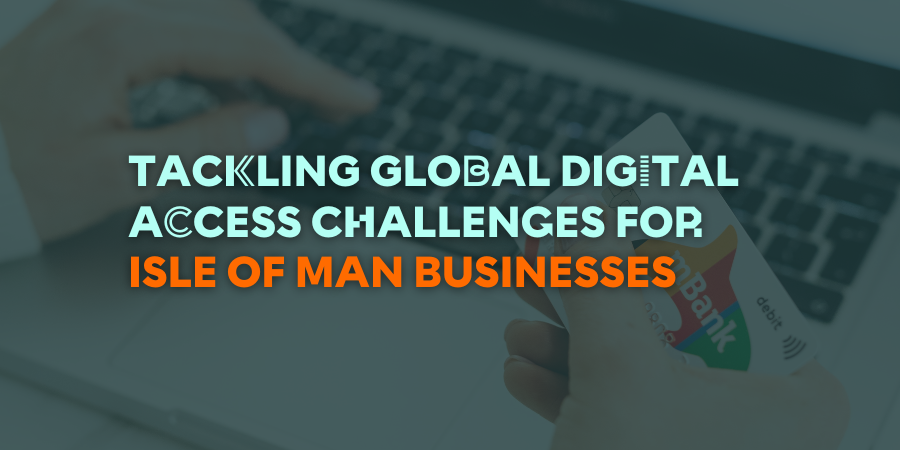ESPORTS VS VIRTUAL SPORTS: HOW ADVANCEMENTS IN TECHNOLOGY ARE REVOLUTIONISING THE WAY PEOPLE ENAGAGE IN SPORT AND COMPETITION
18 October 2023

By Lyle Wraxall, CEO, Digital Isle of Man
Esports has formed part of our Programme for enhancing the Island’s digital economy for several years now, but we’ve not yet touched on the exciting world of virtual sports. This is an area that I have much personal interest. Particularly in the transformative virtual exercise app, Zwift. Which allows cyclists and runners to train and compete with fellow enthusiasts within a virtual world.
Esports and virtual sports platforms represent two influential facets of the digital sports universe. These platforms have revolutionised the way individuals engage with physical activity and competition, though their mechanisms and impacts differ significantly.
HOW THEY’RE DIFFERENT:
Esports refers to the world of competitive video gaming, where individuals or teams compete in various game genres, such as Multiplayer Online Battle Arena (MOBA), First-Person Shooter (FPS), and Real-Time Strategy (RTS) games. Top titles, such as League of Legends, Counter-Strike: Global Offensive, and Dota 2, have attracted millions of players and spectators worldwide, creating a vibrant community around professional gaming.
Virtual sports on the other hand marry technology with real-world physical activity through the use of sensors, devices, and software to track and display the performance of participants. Unlike traditional esports, virtual sports platforms require physical exertion and emulate real-world sports in a virtual setting. Players use real bicycles or treadmills connected to the platforms, bringing the intensity and physicality of outdoor cycling or running into their own homes. This adds a fitness aspect to the gaming experience that traditional esports (which are primarily mentally and reflexively demanding) generally lack. These online platforms also enable sports fanatics to train and compete in a virtual environment, connecting athletes worldwide. Users can interact with each other in real-time, participating in races or group workouts in a gamified setting.
DEMOGRAPHICS THEY APPEAL TO:
In terms of audience, esports typically draw a younger demographic, attracted to the competitiveness and strategic complexity of professional gaming. Whereas virtual sports appeal to a wider age group, encompassing fitness enthusiasts, professional athletes, and individuals looking to make their indoor training more exciting and engaging. It attracts those who value the blend of physical activity with the social and competitive elements of gaming.
As someone who lives on the Isle of Man, which is arguably the perfect location for road cycling and the birthplace of two cycling greats, Mark Cavendish and Peter Kennaugh, you might wonder why I would choose to use a virtual sports platform. Simply, I am motivated through data, competition, and self-improvement. Zwift is the ideal and most convenient platform for this, where I don’t need to worry about dressing appropriately for the weather or dealing with a flat tyre miles from home. Instead, I can easily see how I’m performing against the pack, and of greater significance to me, against my personal bests for each segment.
SERIOUS COMPETITION:
Competition in both fields can reach serious levels. Esports tournaments often feature large cash prizes and endorsements, much like traditional sports championships. Virtual sports meanwhile are the subject of official events, where athletes compete virtually but are physically exerting themselves to the fullest.
Earlier this year, the International Olympic Committee (IOC) hosted the inaugural Olympic Esports Series - a global virtual and simulated sports competition. Delivered by the IOC in collaboration with international sports federations and game publishers it featured ten disciplines, including cycling, which was facilitated by the International Cycling Union (UCI) and utilised the Zwift platform. For the finals, competitors gathered in Singapore to compete in the same arena, and the competition was streamed globally by the IOC
Olympic Esports Series | Finals | Cycling x Zwift
BENEFITS AND PITFALLS:
Some of the significant positive impacts of virtual sports platforms, is the promotion of physical fitness and the democratisation of sports. Barriers such as geographical location, weather, and time are eliminated, providing accessibility for a broader audience. Whereas esports, has ushered in a new era of digital athleticism, demonstrating that mental agility, strategic planning, and fine motor skills can also be the basis for sport.
However, each of these sports expressions face unique challenges. Esports has to deal with issues like gaming addiction, cyberbullying, and the lack of a robust regulatory framework. As well as the potential to encourage isolation and incite possible health problems. Meanwhile, virtual sports, in addition to often requiring expensive equipment to be able to participate, faces questions about the authenticity of performances, with potential issues such as device calibration affecting the fairness of competition.
TO SUMMARISE:
While esports and virtual sports platforms operate within the digital realm, their target audiences, nature of competition, and societal impacts vary widely. Esports centres on mental prowess and digital skills, attracting a younger, game-focused demographic. Virtual sports, meanwhile, integrate physical activity into a virtual, gamified environment, making fitness more accessible and appealing to a diverse range of athletes and fitness enthusiasts. As technology continues to evolve, both will undeniably play significant roles in the future of sports and fitness.
At Digital Isle of Man, we are committed to continuously expanding our knowledge and understanding of developments within all areas of the digital landscape, both in our professional roles and personal lives. This commitment provides us with a deeper insight into the latest advancements and how we can enhance the Island's appeal to new and existing businesses in this sector.
Digital sports are still in their relative infancy compared to other segments of the digital economy. In this ever-evolving field, the Isle of Man's strong reputation for quality, innovation, and business efficiency makes it an attractive jurisdiction of choice.
If you would like to learn more about what the Island has to offer in the world of digital sports, feel free to contact our Esports Executive, Liam Slack, at Liam.Slack@gov.im





